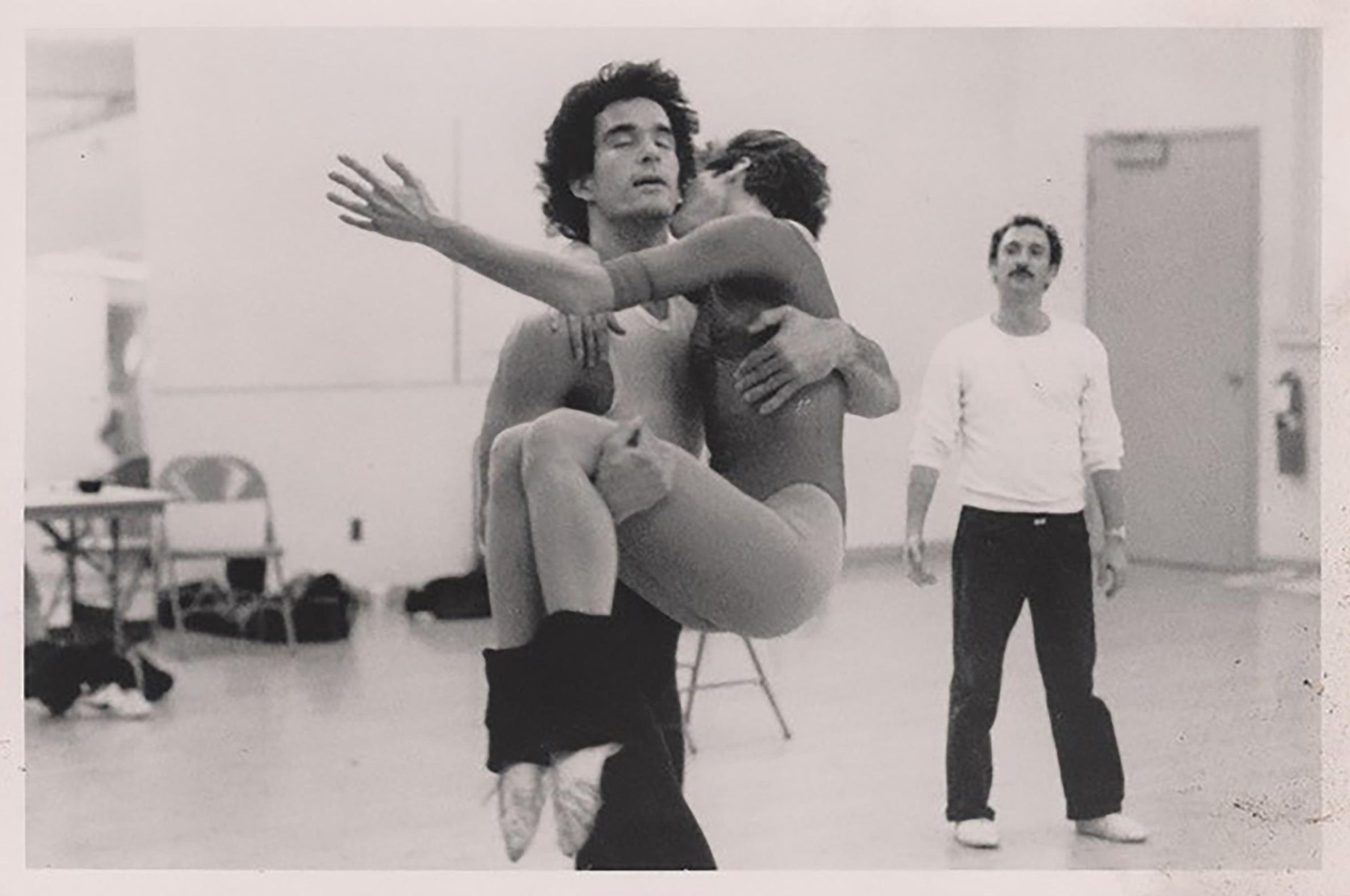
3 minute read
Three Geniuses: Michael Bennett, Jerome Robbins + Jack O’Brien
BY JERRY MITCHELL
“Human rights have crept into the theatre.’’
I will never forget that phrase. Where I was and who spoke those words. At the time, it was said nonchalantly, but it puzzled me and made me sit up and listen. Was he bitching about someone specific? Was there some incident? Or was it just a frustrated throwaway at the end of an extremely concentrated day of dancing? I was young, sitting at the feet of a giant, and I was absorbing everything every day.
Often after rehearsals we would go to his office across the hall and have a drink. Jodi Moccia, Danny Herman, myself, and a few others from the cast would be invited for a “wrap-up cocktail.” We would talk over the choreography of the day and speak openly about our sexual experiences. Why were we talking about sex? Because the show was about sex. All kinds of sex. This musical was going to be shocking, funny, and have a point to make about sex and love. But the point I am trying to make is we were being asked to talk. Rehearsal had finished, but the work went on.
Have you guessed the giant who first uttered that phrase?
The quote is Michael Bennett’s. The time was 1984/1985, and the place was Michael’s office on the seventh floor of 890 Broadway, across the hall from Studio A, where we were in our second six-week workshop for the musical SCANDAL.

Michael Bennett in his office at 890 Broadway
PHOTO Martha Swope © The New York Public Library for the Performing Arts

Michael Bennett rehearsing SCANDAL with Jerry Mitchell + Jodi Moccia
PHOTO c/o Jerry Mitchell
Time Jump
Now it is 1988. I’m back at 890 Broadway on the seventh floor, but this time in a small side room with another giant of the industry. Equity deputies are explaining to him the rules for five- and 10-minute breaks for the performers. My mind flashes back about four years to that phrase, “Human rights have crept into the theatre.” I am witnessing a giant of our industry who can’t understand why he can’t control when the breaks happen. He promises to give the required number by the end of each day but when he deems appropriate based on the workflow. No dice!
The giant? Mr. Robbins. Jerry, if you were lucky enough to sit by his side as I did for two years, absorbing everything every day. Jerome Robbins had not rehearsed under a Broadway contract since his last triumph in 1964, FIDDLER ON THE ROOF, 24 years before.
Rules and regulations had changed, and Jerry had to change too. At times, it was difficult, but he rose to the occasion and JEROME ROBBINS' BROADWAY was a smash.

Jerome Robbins in rehearsal for JEROME ROBBINS' BROADWAY
PHOTO Martha Swope © The New York Public Library for the Performing Arts
Time Jump
It’s May 2000, and I have been working as a choreographer with the brilliant Jack O’Brien on a new musical, THE FULL MONTY, at the Old Globe in San Diego. And suddenly the phrase “Human rights have crept into the theatre” finally makes sense to me. Sitting in a legendary note session with Jack O’Brien is everything you need to know about collaboration and why human rights in the theatre should be embraced by every director and feared by none. That became clear with Jack and THE FULL MONTY but continues to this day. In over a decade of collaboration, Jack O’Brien has taught me how a director can and should collaborate. Human rights don’t creep into the theatre with Jack. They are invited in, welcomed, and encouraged. They are used to enhance our stories and uncover inequalities in our lives.

Jack O'Brien
PHOTO c/o The Old Globe
Inspired equally by these three geniuses, I saw the choreographer and director I could be and wanted to be.
Michael and Jerry were raised in the dance studio, where discipline and accuracy were praised and speaking was forbidden, especially during class or a rehearsal, but I saw them shift their collaborative approach and attitudes.
Jack—an actor, an assistant, an artistic director, as well as a director—was raised in environments of collaboration.
Musical theatre is about collaboration. All theatre is about collaboration. I had the great good fortune to learn these lessons of collaboration from these men and a few other artists: Agnes de Mille, George Faison, Ron Field, Onna White, Donald Saddler, Jerry Zaks, and Tommy Tune— as well as how the ONLY way I can work is by welcoming everyone into the process.
Human rights have indeed crept into the theatre. And we are all better for it.

Jerry Mitchell is a theatre director and choreographer.










